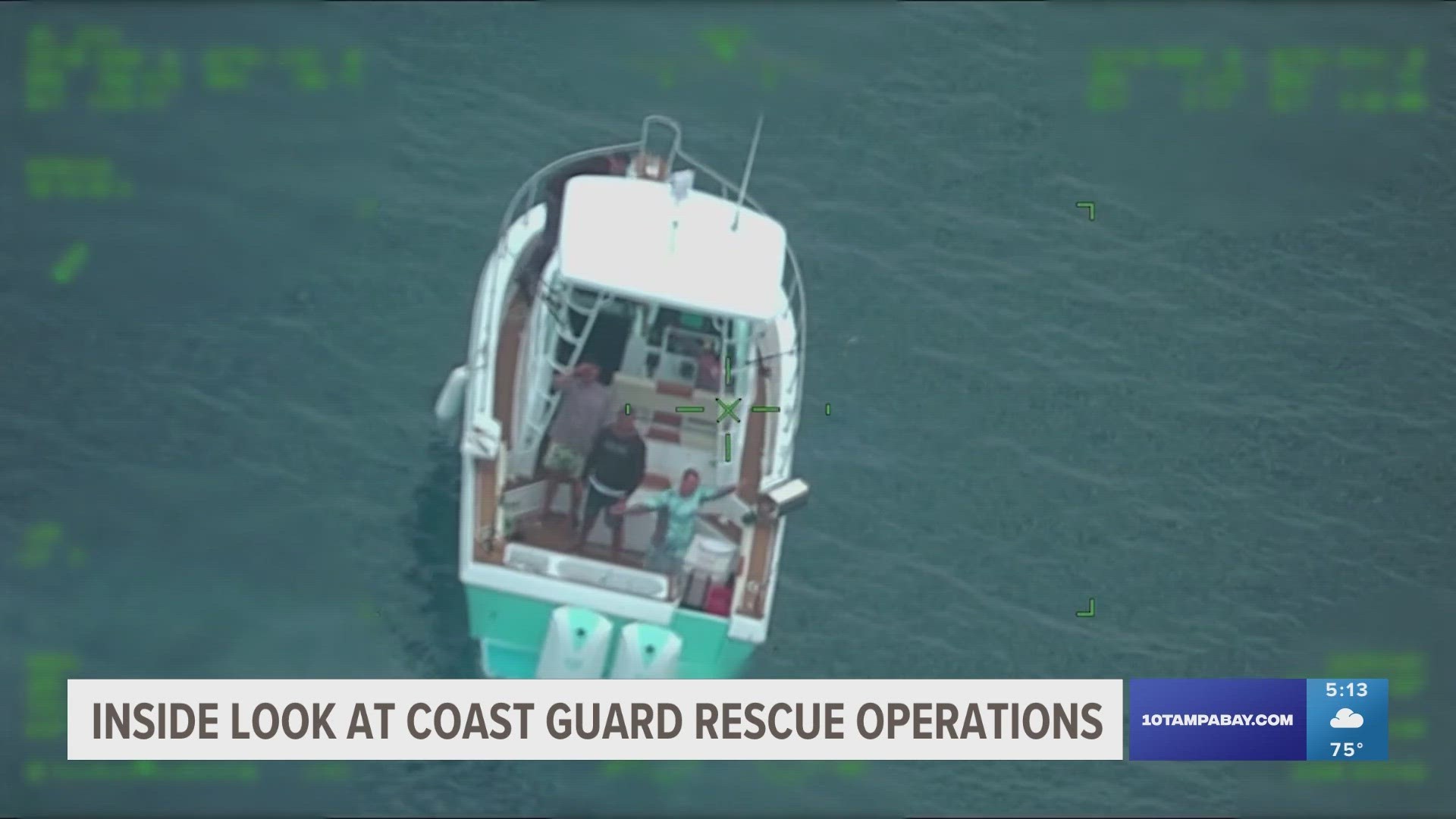ST. PETERSBURG, Fla. — From rescuing stranded boaters in the Gulf of Mexico to helping airlift a man who suffered a stroke on a cruise ship 200+ miles from shore, U.S. Coast Guard St. Petersburg responds to emergencies on the water nearly every day.
10 Tampa Bay got a behind-the-scenes look at how USCG operates search and rescue missions, starting inside their dispatch center at the base near downtown, where distress calls from boats or concerned family members first come to Coast Guard officers.
LTJG Connor Sullivan is the command duty officer for search and rescue operations in the gulf, which he says has four main objectives: Minimize loss of life, injury and property loss; minimize crew risk; optimize resources; and maintain world leadership.
When responding to calls about boaters who haven’t returned, they must meet four criteria:
- A vessel was known to have departed a specific location at a certain time.
- A vessel planned to arrive at a certain place at a time, or check-in.
- The vessel has not arrived or checked in.
- The source provided this Coast Guard with that information and other important facts.
“To give it that overdue classification we need to have that set plan in place under most circumstances,” Sullivan said.
Sullivan outlined the meticulous process from there. It begins with calling local marinas, identifying the last known location, and issuing broadcast warnings while continuing to conduct interviews with friends and family.
Crews then determine a search area, usually a rectangular area of open water tens of nautical miles long and wide. Using software they scientifically map a detailed grid for Coast Guard aircraft and boats to survey, taking into account weather conditions and currents that could expand the search area as time goes on.
“Timely notifications timely checks in with family that’s crucial because you can see what happens in 24 hours,” Sullivan added.
“The more detailed the information, the greater chance of us finding you, the greater chance of you coming home safely,” Petty Officer Nicole Groll said.
Coast Guard crews will exhaust all efforts in a search along the top of the water, but sometimes variables like what emergency equipment was on board, water and air temperature could lead to a search suspension.
An unfortunate conclusion in cases like the four fishermen who went missing off the coast of Venice last month.
“It means we are not actively searching,” Groll said. “If we get more information that pertains to the search, debris field something, then we will open."
There are ways you can help the Coast Guard help you, they stress the importance of boaters filing a float plan, making regular check-ins, and having life vests, radios and an EPIRB on board.
“Take that in consideration when you're going to go out on the water. Tell someone where you're going and when you're going to be back and be as detailed as you can be,” Groll added.
RELATED: Is a 'mass migration' of Haitian immigrants headed to Florida? What state, federal officials said
The Coast Guard also says they are prepared for a possible influx of Haitian migrants but have not seen evidence of an uptick yet and it’s not as a big of concern on the west coast of the state.

